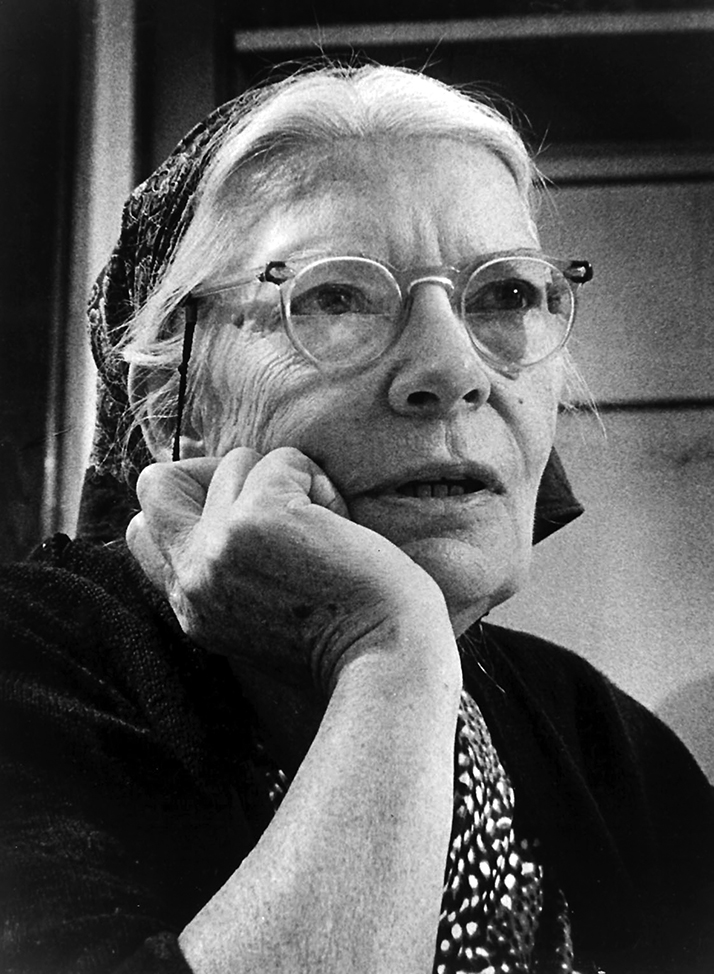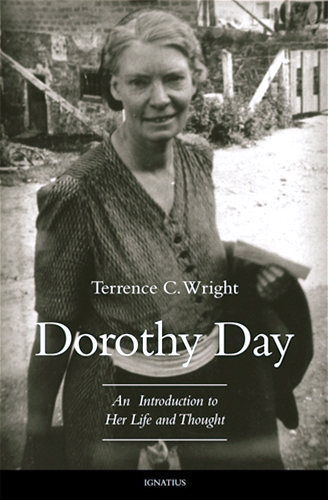

Nov. 29*
Servant of God
Dorothy DayBorn: Nov. 8, 1897
Baptized Catholic: Dec. 28, 1928
Founded Catholic Worker Movement: May 1, 1933
Died: Nov. 29, 1980
Declared Servant of God: March 16, 2000
Born Nov. 8, 1897, in Brooklyn, her nominally religious family later moved to San Francisco, where she was baptized an Episcopalian. Her family later moved to Chicago, and Day attended the University of Illinois in Urbana.
However, she worked in New York City as a journalist. While in New York, she got involved in the causes of her day, such as women’s suffrage and peace and was part of a circle of top literary and artistic figures of the era.
In Day’s personal life, though, she went through a string of love affairs, a failed marriage, a suicide attempt and an abortion.
But with the birth of her daughter, Tamar, in 1926, Day embraced Catholicism. She had Tamar baptized Catholic, which ended her common-law marriage and brought dismay to her friends.
“Within weeks of her baby’s birth, Dorothy knew beyond a doubt that the best thing she could do for her child was the gift of Baptism,” said Bishop Thomas J. Olmsted in a homily celebrating the first feast day of Pope St. John Paul II Oct. 22, 2014. “And in order to baptize her child she herself needed to be baptized; and for that to happen, she had to make costly changes in her life. But, with new-found faith, she could see that it is the harsh and dreadful love of Jesus on the Cross that brought light and joy to the darkness of her heart.”
Audio PlayerTony Gutiérrez, editor of “The Catholic Sun,” discusses the cause of canonization of Servant of God Dorothy Day on “The Bishop’s Hour.” CLICK HERE for full episodes.
‘Dorothy Day: An Introduction to Her Life and Thought’
Author: Terrence C. Wright
Publisher: Ignatius
Length: 162 pages
Release Date: March 20, 2018
Available at: Kino Library
As she sought to fuse her life and her faith, she wrote for such Catholic publications as America and Commonweal. While covering the 1932 Hunger March in Washington, D.C., for some Catholic magazines, she prayed at the national Shrine of the Immaculate Conception that some way would open up for her to serve the poor and the unemployed. The following day, back in New York, she met Peter Maurin, a French immigrant and former Christian Brother, who had a vision for a society constructed of Gospel values. Together they founded the Catholic Worker newspaper which spawned a movement of houses of hospitality and farming communes that has been replicated throughout the United States and other countries.
At the Catholic Worker, Day lived a life faithful to the injunctions of the Gospel. Often the newspaper quoted G.K. Chesterton’s famous observation that Christianity hadn’t really failed — it had never really been tried. Day’s life was spent trying.
“The ability to oppose the ideological enticements of her time in order to choose the search for truth and to open herself to the discovery of faith was witnessed by another woman of our time, the American Dorothy Day. She confessed openly in her autobiography to having succumbed to the temptation to solve everything with politics, adhering to the Marxist proposal: ‘I wanted to be with the protesters, go to jail, write, influence others and leave my dreams to the world. How much ambition and how much searching for myself in all this!’,” said Pope Emeritus Benedict XVI during his Feb. 13, 2013, general audience.
“The journey towards faith in such a secularized environment was particularly difficult, but grace acts nevertheless, as she pointed out: ‘It is certain that I felt the need to go to church more often, to kneel, to bow my head in prayer. A blind instinct, one might say, because I was not conscious of praying. But I went, I slipped into the atmosphere of prayer ….’ God guided her to a conscious adherence to the Church, in a life dedicated to the underprivileged.”
While working for integration, Day was shot at. She prayed and fasted for peace at the Second Vatican Council, received communion from Pope St. Paul VI at the 1967 International Congress of the Laity and addressed the 1976 Eucharistic Congress in Philadelphia. She died in 1980 in Maryhouse, one of the Catholic Worker houses she established in New York City. Her cause was opened in the Archdiocese of New York in March 2000.
“In these times when social concerns are so important, I cannot fail to mention the Servant of God Dorothy Day, who founded the Catholic Worker Movement. Her social activism, her passion for justice and for the cause of the oppressed, were inspired by the Gospel, her faith, and the example of the saints,” said Pope Francis in his address to the U.S. Congress Sept. 24, 2015, during his historic apostolic visit to the United States. “A nation can be considered great … when it strives for justice and the cause of the oppressed, as Dorothy Day did by her tireless work ….”
* While there are no feast days for Servants of God, this is the date Dorothy Day entered eternal life. As the co-founder of the Catholic Worker movement, she is a patroness of Catholic Worker communities, including André House of Hospitality in Phoenix.







